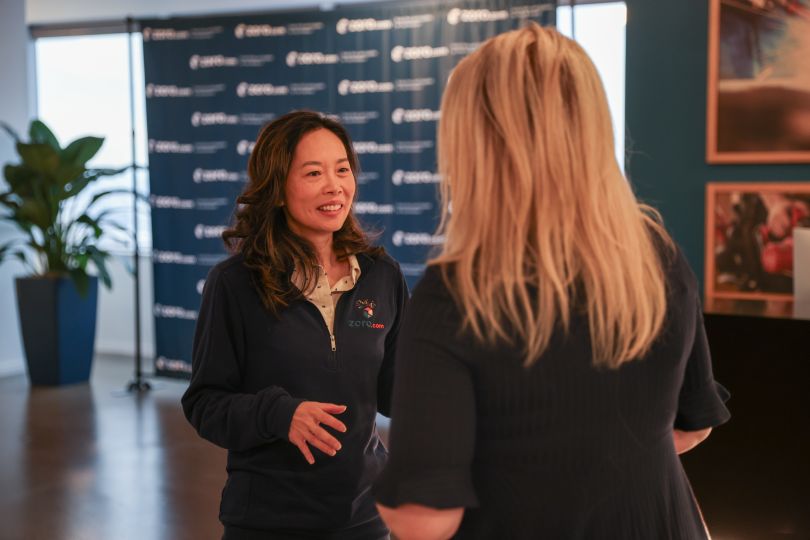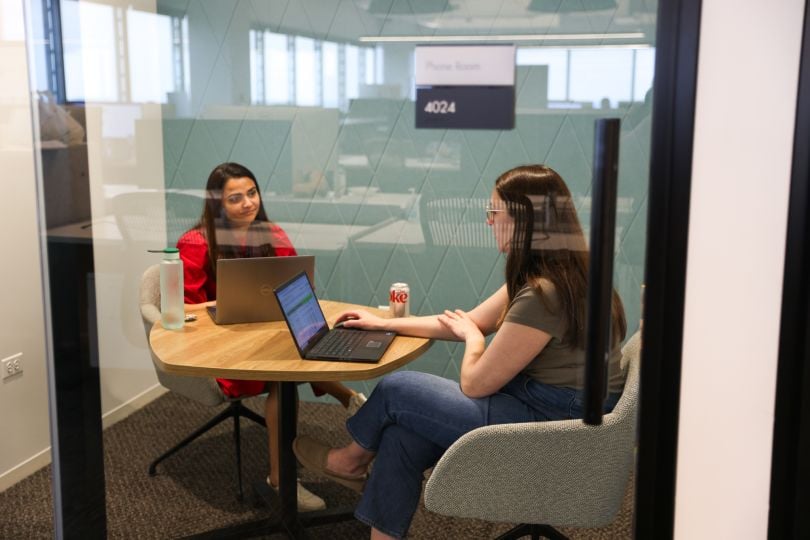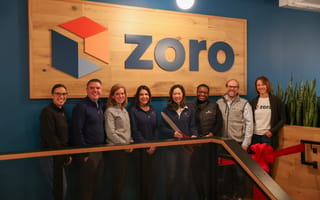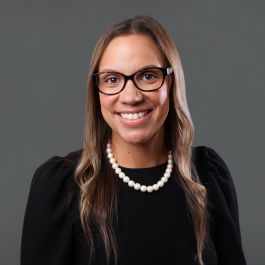Podcasts were just starting to become popular. Wi-Fi wasn’t a household amenity. Google Earth and Reddit were newborns.
All of these were tech milestones in 2005, when VP of Human Resources Janai Howard began her career supporting organizations in the tech industry.
“I’ve supported businesses in the tech industry for over 19 years, and while it has always been a heavily male-dominated industry, I’ve seen encouraging progress over time,” she said.
In those first few years, Howard recalls looking around and struggling to find women mentors in the tech industry.
“Early in my career, there were fewer female role models and advocates,” she told Built In. “But over the years, I’ve seen more opportunities for women to lead, contribute and shape the future of tech.”
Built In spoke with Howard about what the HR team at Zoro, an e-commerce company that sells products to help keep businesses running, is doing to ensure the company is an equitable place for women in tech.
“In my experience, tech professionals are increasingly focused on diversifying not just by gender, but also by race and thought,” Howard pointed out. “They recognize that innovation thrives in inclusive environments, and I’ve found many are open to change and eager to improve their organizations by fostering that diversity.”
Howard isn’t wrong. The World Economic Forum found that companies with higher diversity leadership scores generate 45 percent of their revenue from innovation. The correlation between innovation and diversity has been proven time and time again in business research.

Mentorship and Opportunity
Howard credits Zoro’s programs and policies as helping her make advancements in her career.
“During my time at the company, I’ve had numerous opportunities to grow and advance my career,” she noted. “I’ve gained new experiences at different levels, both through lateral movements to expand my skills and through promotions that have allowed me to take on more responsibility.”
“During my time at Zoro, I’ve had numerous opportunities to grow and advance my career.”
She shared that one of the key growth opportunities was using the organization’s education reimbursement program.
“It enabled me to pursue and obtain my MBA,” she said. “This not only expanded my knowledge base but also provided me with new perspectives and skills that I’ve been able to apply directly in my role.”
Leaders and peers at Zoro have also been pivotal supports in Howard’s growth in tech — particularly through internal sponsorship and mentorship.
“Having both a sponsor and mentor has opened doors for me to take on stretch projects, which have pushed me beyond my comfort zone and expanded my skill set,” she added. “Informally, these relationships have provided guidance, feedback and advocacy at key moments in my career.”
Gallup advisory and analytics company conducts extensive research on women in the workplace, and an article written by Gallup’s director of hiring analytics noted that while mentorship is important, it’s really only half the battle. The article draws attention to the role of what it calls “career investors” — which Howard and Zoro call “sponsors” — someone who sees a colleague's potential, finds ways to highlight it and offers a personal guarantee on their ability to deliver. Several high-profile business research entities point to roles like this as a meaningful way to make the workplace more equitable.
Howard tries to make a point to “pay it forward,” as she calls it, by taking the time to thoroughly understand the aspirations of her women peers.
“Then I can actively advocate for their growth, ensuring that their contributions are recognized and they have opportunities for advancement,” she said.

DEI Feedback
Zoro as a company is in a unique position. Its executive leadership team is 75 percent women, and its workforce as a whole is over 50 percent women.
“We have a strong culture of gender diversity,” noted Howard. “Zoro has ingrained in its culture that everyone has a voice, and in my experience, this commitment to inclusion is done better here than at any other place I’ve worked.”
She pointed out that Zoro also has specific perks and benefits that support women in the workplace.
“We have an inclusion group that fosters a sense of belonging, as well as fireside chats that create spaces for sharing and listening to diverse perspectives,” she noted.
Zoro’s DEI-Related Perks
- Dedicated diversity and inclusion staff
- Documented equal-pay policy
- Highly diverse management team
- Mean gender pay gap below 10%
- Mandated unconscious bias training
- Diversity employee resource groups
- Hiring practices that promote diversity
Part of the HR efforts that Howard oversees is how Zoro gathers feedback on diversity, equity and inclusion through both a recurring engagement survey and an annual check-in survey.
“We take the time to review and read all comments, which helps us identify areas of improvement,” said Howard, sharing how the engagement survey and annual check-in work. “As the HR leader, this feedback directly shapes my goals and priorities. It allows us to create actionable plans to address concerns, foster inclusivity and continuously evolve as an organization. This ensures that DEI remains central to our culture and strategy, driving meaningful progress.”

The company also has inclusion councils and employee-led inclusion groups that Howard says are important pieces of open dialogue and collaboration on DEI.
”Additionally, we offer yearly training for our managers focused on creating psychologically safe environments, where team members feel comfortable having open conversations about DEI,” Howard added.
She shared the example of feedback they received from an employee who pointed out that the content in the manager training program needed to specifically address ways that managers could facilitate more inclusive conversations and recognize unconscious bias.
“This has helped foster more inclusive leadership practices and improved our ability to create an environment where all employees feel heard and supported,” noted Howard.
One small piece of feedback helped improve the training materials that likely had an ongoing impact at the company. For Howard, these types of seemingly small but valuable actions are often the first domino to start a chain reaction.
She concluded, “While there’s still work to be done, I’m encouraged by the growing emphasis on creating workplaces where diverse perspectives are valued and actively sought.”






